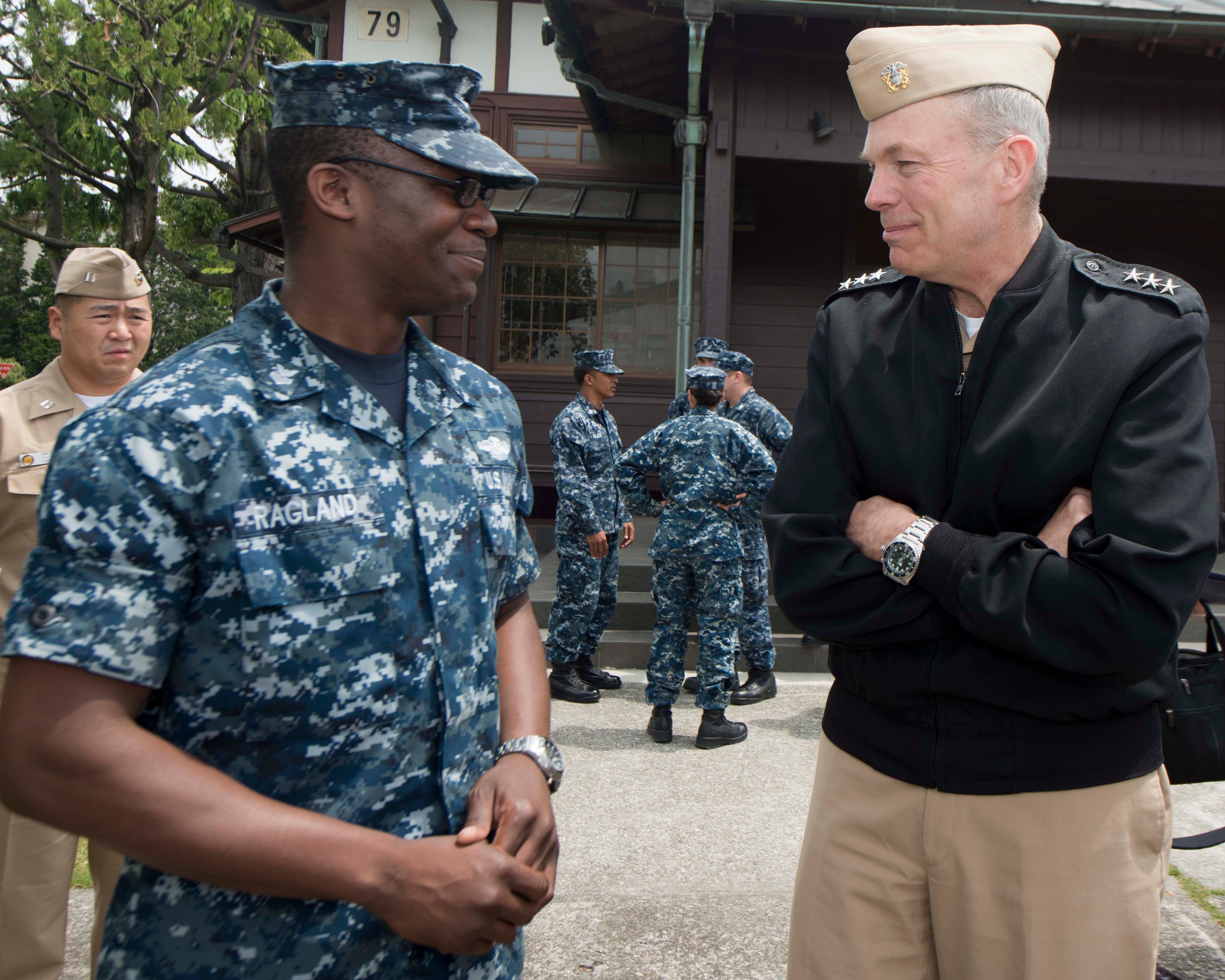Many retired senior military officers land jobs in the find their way into the defense industry after they hang up their uniformsone way or another: After a long career in public service, it's a way to make some serious money after a long career in public service before they retire for good.
But retired Vice Adm. Bill French, a career submariner and former head of Navy Installations Command, chose a different kind of path. French now heads the Armed Services YMCA, a job he stepped into in March after retiring late last year.
Armed Forces YMCA provides a range of services at dozens of locations around the country, including from before and after school care, child and parent development, financial planning, summer camps and counseling, all supported by donations.
We caught up with French to talk about his vision for expanding the organization and his life after the militaryNavy.
Q. After retirement, mMost admirals after retirement go into industry jobs that keep them in the same social and professional circles they used to run in. How did you end up in non-profit work?
When I retired from the Navy, I wanted to leverage the work I had been doing for the previous 10 years while on active duty supporting sailors and their families. I was also very committed to working within an organization whose mission was founded on Christian principles.
It's interesting in life to see how things always seem to work out for the right reason. I had not even thought about transitioning jobs following retirement. In fact, my wife, Monika, and I had planned on taking an entire year off. I got a phone call and was asked if I was interested in working with the Armed Services YMCA. I discussed the opportunity with my wife, who had served as an adviser to the Armed Services YMCA in San Diego when we were stationed there. It was clearly the right fit for both of us, so we cut our planned yearlong sojourn through the U.S. short so I could take this job.
Q. How has your background prepared you for this role?
The Navy prepared me very well. I think all veterans leave the service with a greater skill set, whether it is after their first enlistment or after a career. Veterans are adept at transferring skills to new tasks. They have advanced training, team building skills and can quickly earn the trust of those around them. They also have a strong organizational commitment, high resiliency; cross-cultural experiences and are accustomed to diverse work settings. I hope every employer reading this considers a veteran for their next open position.

During his 35-year career, French held six command positions dedicated to supporting the Navy mission, sailors and their families. Here, he answers a question from Hospital Corpsman 1st Class Derrick Ragland.
Photo Credit: MC3 Ryan Greene/Navy
But more to the point of the question, I believe that the greatest skill I bring to this job is my love of the young men and women who serve our great country. I knew when I retired from active duty, I would be the happiest if I found a way to continue my association with these wonderful, dedicated Americans.
Q. Can you describe your mission at the Armed Forces YMCA?
Unlike traditional community YMCAs throughout the country, where people use the fitness equipment and pools, the Armed Services YMCA has unique programs designed to support our junior-most servicemen and their families. The majority of our programs are focused on supporting E-5 and junior troops and their families.
The Armed Services YMCA exists to make military life easier. Our mission is to enhance the lives of military service members and their families in spirit, mind and body through programs relevant to the unique challenges of military life. We work closely with DoD leaders and installation commanders to identify gaps in personnel services, then tailor our programming to meet those needs.
Q. What is your greatest challenge as an organization?
We want to improve the lives of as many families as possible, so I think our greatest challenge will be finding a way to provide our programs to even more service members. I am very interested in increasing our visibility by informing our military leaders, particularly those who have responsibility for significant junior enlisted populations, about the services we provide.
Program expansion requires budget growth, which means we will need additional contributions from faithful patriots across our great nation. Armed Services YMCA is a very efficient nonprofit, with 89 cents of every dollar going directly to support programs, but we will need more to do more for our military families.
Unlike the community YMCAs, we do not receive funding from memberships of those who use the fitness facilities and the pools. All of our programs are provided free or at a minimal cost. We are dependent on the contributions from individuals and corporate donors to sponsor all of our programs.
Q. What do you want people to understand about what you do?
I think it's important to understand the positive impact the Armed Services YMCA has on our troops. Last year, iIn 2014, more than 15,000 volunteers contributed 127,000 hours to support 500,000 military and military family members.
Nearly 800 troops and family members were sent home through Operation Ride Home and over 3,500 military children attended a summer camp. We want to reach even more service members and their families. We are always looking for more volunteers, more donations, and most importantly, more service members who will benefit from our programs. Thanks for helping us spread the word.
David B. Larter was the naval warfare reporter for Defense News.




